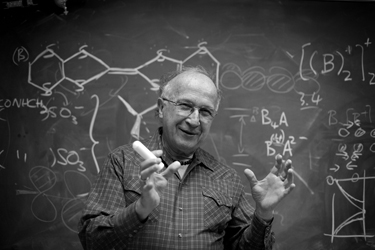
Roald Hoffmann, Cornell University chemistry professor, 2006.
PHOTO: MACIEJ ZIENKIEWICZ / AGENCJA GAZETA
Roald Hoffmann was born in 1937 in Złoczów, Poland. Having survived the German Nazi occupation, in 1946 he left Poland with his family for Czechoslovakia, Austria, Germany and arrived in the U.S.A. on February 22, 1949, at the age of 11. He studied chemistry at Columbia and Harvard Universities (Ph.D. 1962). He has received many honors as a scientist, including the 1981 Nobel Prize in Chemistry. In addition to his scientific work, Roald Hoffmann is also a writer. He has co-written a play with fellow chemist Carl Djerassi, entitled “Oxygen,” which has been performed worldwide, and translated into ten languages. A second play, “Should’ve,” has had several workshop productions since 2006; a new play, “We Have Something That Belongs to You,” had its first workshop production in 2009.
I met Roald Hoffmann in 2004, when I was a poor immigrant graduate student in the Theatre Department at Cornell University, where he had been teaching since 1965. I was teaching a course on Polish theatre and one of my students, who was also taking Roald’s chemistry class, suggested we should meet because we both share Polish roots and both are interested in theatre. She connected the two of us and Roald invited me for dinner. As a general rule, grad students are conditioned never to refuse a free meal, and so began our friendship. During this first dinner, we discovered that we share much more than just our Polish background and love of theatre. We both are fascinated by the intersection of art and science, the known, the mysterious and the unknowable that reveals itself in both the sublime world of art and the rational (he would say “not as rational as you think”) world of chemistry. In fact, Roald wrote two books on the connection between art and science: Roald Hoffmann on the Philosophy, Art, and Science of Chemistry and Beyond the Finite: The Sublime in Art and Science (both from Oxford University). For the next two years, we continued with our dinner conversations, and since 2006, when I graduated and moved to Boston, we have exchanged numerous emails, sharing our plays, essays and thoughts on various topics, from playwriting and Jewish history, to art, family and the importance of memory. This conversation is an extension of these exchanges….
* * *
MR: You were born in Poland and you spent your early childhood there. It was not a happy childhood. Your family was sent to a ghetto and to a labor camp. Your father was killed. There is an entire generation of Polish Jews, artists and scientists, for whom the trauma of war and Holocaust became a formative experience. Your latest play, We Have Something That Belongs to You, is a tribute to your mother and her survival story. Can you tell me a little bit about your relationship to your Polish origins, and how the experience of Holocaust shaped your way of thinking about life, the human condition and the universe at large?
RH: There is no question that we were Polish as well as Jewish – my parents were educated in Polish schools, and drank in the cultural ambience of Poland between the wars. The Holocaust – there is much to say about it, but the most important thing is that we survived, my mother and I. But not my father, not three of four grandparents. One must abandon some romantic notion we have that survivors are better people for the experience; one tries to be good to others, but one is very human. No question that the war, which made a five- to seven-year old keep quiet in an attic of a schoolhouse (what his mother did to create that!) for a year and a half (in 1943-44), has had effects. But having gone through all that, I remain an inherent optimist. About others. Maybe that’s an effect of survival.
MR: Do you know the concept of post-memory? It’s a kind of generational memory of things one didn’t lived through, but seems to remember as if the memory was being passed down from generation to generation, like a genetic code…. I like to tell this story: my great-grand mother survived the Russian Revolution, my grandmother survived Holomodor and the Holocaust, my mother survived forty years of the communist regime. Memory and survival seem to be like art and science…
RH: I don’t know the concept of post-memory, but as a Jew, I can understand it well. Two millennia of exile and persecution left their mark in the collective memory of my people. As did more than that time of studying (religious) texts, and contentious debate around them. Not for nothing did Mohammed call them “the people of the book.” They were well prepared for the age of assimilation, those people – and when they lost their religion, they did not lose their passion – they just shifted it to books, ideas, science.
Speaking of mothers, my poor mother, a strong woman, survived not only World War II, with all her losses. But as a child she got caught up in World War I. She and two brothers were separated from their parents during a shift in the front lines, and then were 3 years (1915-18) in a convent in Vienna, while their parents did not know where the children were.
MR: Poland has changed in the last twenty years. It is experiencing what we can call the Jewish Revival. Synagogues are being rebuilt, Jewish cultural centers are opening and the Museum of Polish Jews in Warsaw promises to be one of the largest of its kind in Europe. Some Polish Jews are moving back to Poland from Israel, something unheard of a few years ago. My own relationship with my mother country is bittersweet… I grew up on Polish literature and I am shaped by that culture, more so than by American culture, I think. So, there is a constant feeling of loss of home… What was it like for you to leave everything behind and to start a new life here in America?
RH: Well, English was my sixth language, and from 1941-1949 we never lived in one place for longer than a year. Children just take it in stride – it’s fun to play in bombed out houses. I suppose I learned not to be attached to any object for a great length of time (so I have no trouble leaving behind last week’s New Yorker in the gym.) As a child, I loved every bit of America, from the Tarzan comic book a sailor gave me on the boat here, to the Bela Lugosi matinee films in Williamsburg, the old Williamsburg, to taking the ferry to Staten Island.
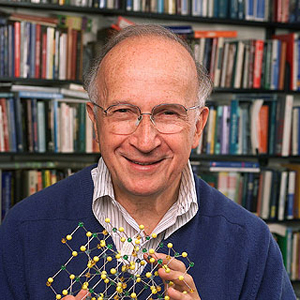 MR: I’ve read somewhere that the experience of diaspora, the sense of loss, was what influenced post-war Jewish immigrants’ interest in science. It was an attempt to find something solid, unmovable. What made you want to become a chemist? You have so many interests. Why chemistry? Was there a dramatic decision point at which you had to choose between your multiple drives, between your right and left side of brain, the artistic and scientific impulses?
MR: I’ve read somewhere that the experience of diaspora, the sense of loss, was what influenced post-war Jewish immigrants’ interest in science. It was an attempt to find something solid, unmovable. What made you want to become a chemist? You have so many interests. Why chemistry? Was there a dramatic decision point at which you had to choose between your multiple drives, between your right and left side of brain, the artistic and scientific impulses?
RH: First, I did not decide to be a chemist until ¾ of the way through my PhD in chemistry. One way to summarize the wonderful time I had at Columbia as an undergraduate is that I worked up the courage to tell my parents I didn’t want to be a doctor. But I didn’t have the courage to tell them that I wanted to be an art historian. The world of the arts and literature just opened up to me in those college days! Speaking of our mutual interest in the theatre, I remember so clearly the first theater piece that touched me. It was a Barnard production of Garcia Lorca’s “Blood Wedding.”
MR: Why Lorca and why “Blood Wedding”?
RH: I did not know what I was seeing. First Lorca spent an important year at Columbia. And I believe a relative or an expert on Lorca was on the Barnard faculty. It may have been James Graham-Lujan, a Lorca translator. The production was authentic and striking.
MR: I am just realizing now that I have never asked you what was the Nobel for. Can you explain it to me in the simplest possible way? What was the big discovery?
RH: I and a Harvard professor, RB Woodward, (who would have been awarded his second Nobel Prize had he lived two years longer) used some ideas from physics, quantum mechanics, to come up with an explanation of why some chemical reactions were easy, and others more difficult. And we made predictions that were quickly verified– the dynamics with the experimental community was incredibly exciting.
I don’t own a single patent, not that I am proud of that. But that work that we did, on “orbital symmetry control,” in the hands of others, led to many useful and lucrative patents.
MR: To go back to mothers… Remember, we talked once about how the struggles of our mothers connected us to the world….You liked my essay, “How I Survived Socialism,” published here in CR, about my own mother. Can you tell me more about your play, Something That Belongs to You, and why you decided to pay tribute to your mother in dramatic form?
RH: This is an autobiographical play, about my mother and me. It alternates scenes (with one burlesque counterpoint in Heaven) between 1991 Philadelphia and the two of us in that attic in Poland/Ukraine. Remember Adorno’s dictum that one could not write poetry after the Holocaust? Well, I didn’t plan it that way, but every 1943 scene, in that dark attic, turned out to be a poem. It is a play about people making choices for good and evil in those terrible times, about Ukrainian-Jewish relations, fraught with pain. And it tries to move beyond that. And it has a spectacular role for an aging actress.
MR: It’s difficult to write about experience that goes beyond language. How do you really capture something that consumed your entire existence? Yet, what’s left but language? Silence? Do you think that in the modern world the categories of good and evil are being redrawn? Are you concerned sometimes that science, which focuses on the material world, can lead again to redefining of the value of a human being? I have been preoccupied with this question recently, of the relationship between human, post-human and sub-human – the way that these categories have been historically used and applied… The relationship between science, technology and humanism….
RH: Our humanity is being fragmented and reassembled around us, in the technologies sweeping like a cultural virus through our young people. Technologies that allow us to distance ourselves from human contact, yet establish that contact in shorthand and in pictures. There is no time to think.
Ethics is being redrawn, whether it is in downloading music, or creating assemblages from other people’s images. But I also see subculture ethics evolving; so there are things that hackers will not do to each other. I don’t worry about science redefining the value of a human being, but I am concerned about technology and the market place doing that.
MR: You are a true Renaissance man. You speak six languages and write poetry. How is writing poetry different than writing drama? Why are you writing? Most people would assume that after winning the Nobel Prize in chemistry, one can take a pause. But it’s not the accomplishments and the awards that drive you. It’s the curiosity and the need to know. But why writing? What makes you want to write?
RH: I write because I have to write. Ideas for poetry come from a phrase, from two words that resonate with meaning, more than what is in the very words. I’ll give you an example. It is given to me to go to some boring scientific seminars (I know this doesn’t happen to you). I went to one, fell asleep, and woke up to find the speaker still at it. So I began to listen to his words, not for the science but for the words. He was speaking about solving a certain equation, and he said “Let us assume free boundaries.” Of concern to him were the conditions for solving the equation, a technical matter. I immediately wrote down “free boundaries.” I built a poem around those words.
MR: What about plays?
RH: Plays come from a dramatic moment: on stage are two people, or one or three. Something is said, silence may play a role. And in a minute something changes irrevocably. In “Something that Belongs to You,” a relative of the people who hid my mother and me visits with us in the US. She says, “I think we have something that belongs to you,” and takes out a gold ring – we paid the people who hid us with gold, but no amount of gold could pay for the risks they took. My mother, who had trouble seeing, passes the ring to me. I look in it, recognize the engraved initials. I say to my mother “Is this your wedding ring?” She takes the ring, and in one motion passes it back to our visitor. My mother says, “It’s yours.”
I built a play around that moment.
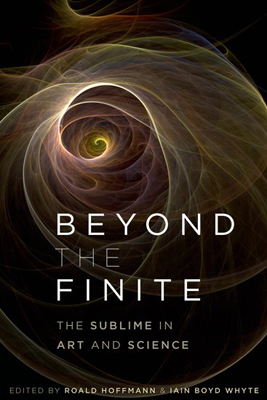 MR: Your two books on art and science, Roald Hoffmann on the Philosophy, Art, and Science of Chemistry and Beyond the Finite: The Sublime in Art and Science attempt to drive a wedge in our current thinking of art and science as two separate, perhaps even antagonistic spheres of knowledge. The funding for art education is being cut and our modern culture is moving away from art and humanities towards STEM, finance and technology. Yet, Einstein was well known for his sense of wonder, his appreciation of the arts and his belief that art and science cannot exist without each other. “The greatest scientists are artists as well,” he said. At every step, there is a limit to what science can explain. We need art to explain what science cannot… What would be your strongest case for the need to salvage (and to fund) art? Why we need it? Do you think we might need it more now than before, in the techno-solitude of our internet driven lives? What should we do to cultivate it, to preserve art?
MR: Your two books on art and science, Roald Hoffmann on the Philosophy, Art, and Science of Chemistry and Beyond the Finite: The Sublime in Art and Science attempt to drive a wedge in our current thinking of art and science as two separate, perhaps even antagonistic spheres of knowledge. The funding for art education is being cut and our modern culture is moving away from art and humanities towards STEM, finance and technology. Yet, Einstein was well known for his sense of wonder, his appreciation of the arts and his belief that art and science cannot exist without each other. “The greatest scientists are artists as well,” he said. At every step, there is a limit to what science can explain. We need art to explain what science cannot… What would be your strongest case for the need to salvage (and to fund) art? Why we need it? Do you think we might need it more now than before, in the techno-solitude of our internet driven lives? What should we do to cultivate it, to preserve art?
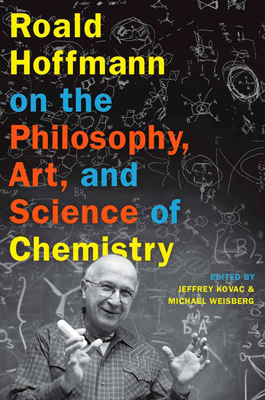 RH: We need the arts, for they address the problems that are capable of no solution, only infinite paraphrasing, infinite resolutions. There is room for the million-third poem about the end of love, for there is no strict calculus of that loss. The humanities also temper the dictates of politics and reason, they make you understand that things are never black or white, but shades of gray in which fallible men and women strive to be good to others and to themselves.
RH: We need the arts, for they address the problems that are capable of no solution, only infinite paraphrasing, infinite resolutions. There is room for the million-third poem about the end of love, for there is no strict calculus of that loss. The humanities also temper the dictates of politics and reason, they make you understand that things are never black or white, but shades of gray in which fallible men and women strive to be good to others and to themselves.
Something is not right about a major university (mine!) into which there come annually 400 million dollars in federal support, of which 385 go for science and engineering, and less than 1 million for the humanities. No reason to blame the government or the university – people need to change too. A first poetry book gets published in the US in an edition of 500-1000 copies, and I assure you not all get sold. That, roughly, is the number of copies that a first poetry book also comes out in Israel or Denmark, countries with a population 75 times smaller than ours.
Please buy poetry, not just mine. That poetry book is about the price of 3 cappuccinos.
CR
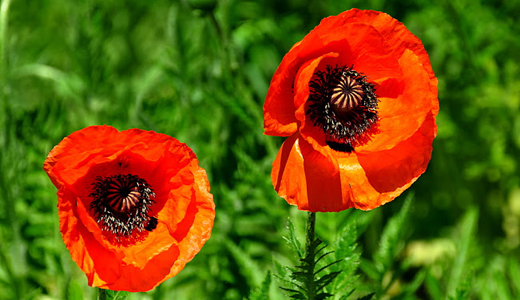
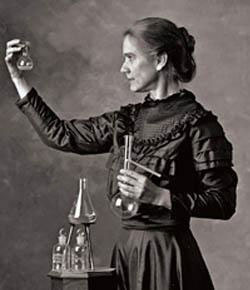
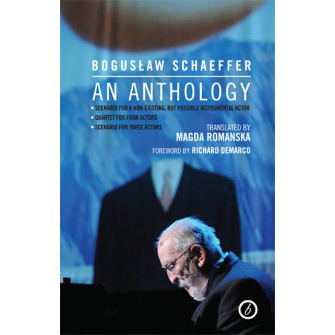
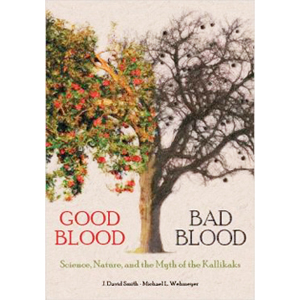
Pingback: Welcome to our Summer 2014 issue!
I am delighted that Cosmopolitan Review has featured an interview with Nobel laureate Roald Hoffmann thanks to the initiative of Magda Romańska. Roald is a real mensch, a true Renaissance man who has been able to fuse science and the arts in a fruitful way. I am proud to recall that during my tenure as Executive Director of PIASA, Roald Hoffmann became the first recipient of Polish Institute’s “Casimir Funk Natural Science Award” in 1995 and was later elected a “PIASA Fellow”.
Thad Gromada
Pingback: Chemist Roald Hoffmann on Being a Playwright | NITEnewsNITEnews
Pingback: Between Art and Science: A Conversation with Roald Hoffmann, Nobel Prize-winner, scientist, playwright and poet – Magda Romanska
Pingback: Between Art and Science: A Conversation with Roald Hoffmann, Nobel Prize-winner, scientist, playwright and poet | Magda Romanska